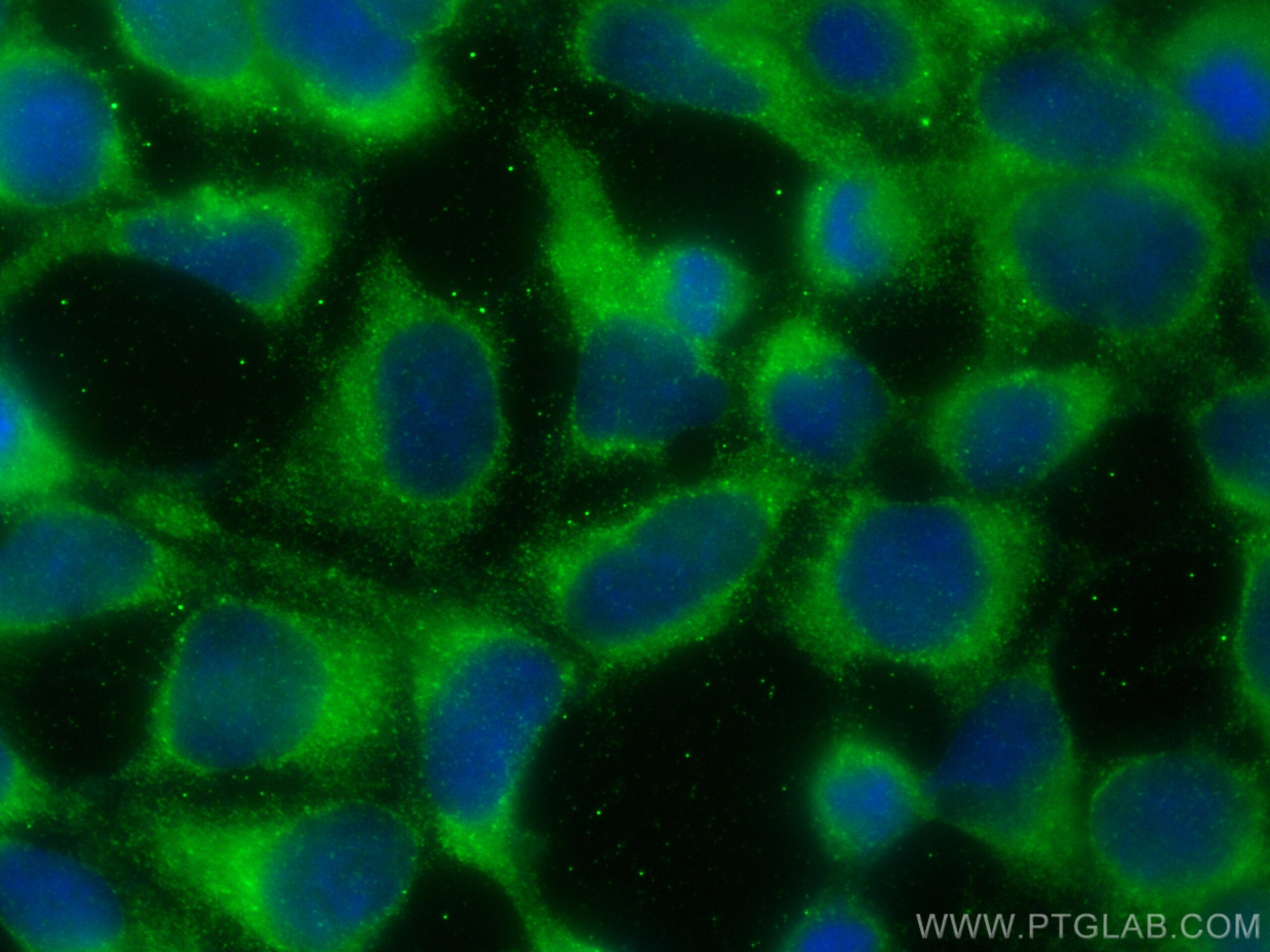Tested Applications
| Positive IF/ICC detected in | HEK-293 cells |
Recommended dilution
| Application | Dilution |
|---|---|
| Immunofluorescence (IF)/ICC | IF/ICC : 1:50-1:500 |
| It is recommended that this reagent should be titrated in each testing system to obtain optimal results. | |
| Sample-dependent, Check data in validation data gallery. | |
Product Information
CL488-14547 targets MSRA in IF/ICC applications and shows reactivity with human, mouse, rat samples.
| Tested Reactivity | human, mouse, rat |
| Host / Isotype | Rabbit / IgG |
| Class | Polyclonal |
| Type | Antibody |
| Immunogen |
CatNo: Ag6053 Product name: Recombinant human MSRA protein Source: e coli.-derived, PGEX-4T Tag: GST Domain: 1-235 aa of BC054033 Sequence: MLSATRRACQLLLLHSLFPVPRMGNSASNIVSPQEALPGRKEQTPVAAKHHVNGNRTVEPFPEGTQMAVFGMGCFWGAERKFWVLKGVYSTQVGFAGGYTSNPTYKEVCSEKTGHAEVVRVVYQPEHMSFEELLKVFWENHDPTQGMRQGNDHGTQYRSAIYPTSAKQMEAALSSKENYQKVLSEHGFGPITTDIREGQTFYYAEDYHQQYLSKNPNGYCGLGGTGVSCPVGIKK Predict reactive species |
| Full Name | methionine sulfoxide reductase A |
| Calculated Molecular Weight | 26 kDa |
| Observed Molecular Weight | 24-26 kDa |
| GenBank Accession Number | BC054033 |
| Gene Symbol | MSRA |
| Gene ID (NCBI) | 4482 |
| RRID | AB_3672591 |
| Conjugate | CoraLite® Plus 488 Fluorescent Dye |
| Excitation/Emission Maxima Wavelengths | 493 nm / 522 nm |
| Form | Liquid |
| Purification Method | Antigen affinity purification |
| UNIPROT ID | Q9UJ68 |
| Storage Buffer | PBS with 50% glycerol, 0.05% Proclin300, 0.5% BSA, pH 7.3. |
| Storage Conditions | Store at -20°C. Avoid exposure to light. Stable for one year after shipment. Aliquoting is unnecessary for -20oC storage. |
Background Information
Methionine sulfoxide reductase A(MSRA), is a ubiquitous and highly conserved protein that carries out the enzymatic reduction of methionine sulfoxide to methionine.MSRA has some isoforms with MW of 19~26 kDa. MSRA functions in the repair of oxidatively damaged proteins to restore biological activity. Transfection of MSRA reduced colony formation and the invasiveness of HCC cell lines.
Protocols
| Product Specific Protocols | |
|---|---|
| IF protocol for CL Plus 488 MSRA antibody CL488-14547 | Download protocol |
| Standard Protocols | |
|---|---|
| Click here to view our Standard Protocols |




